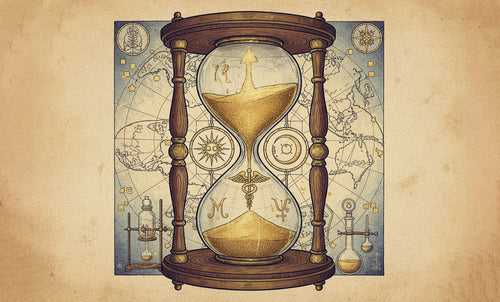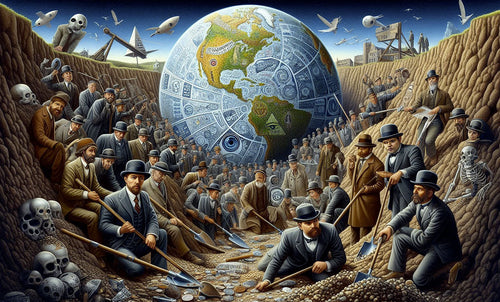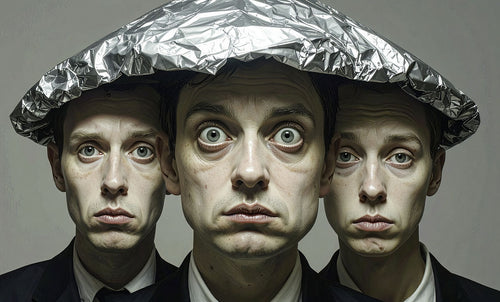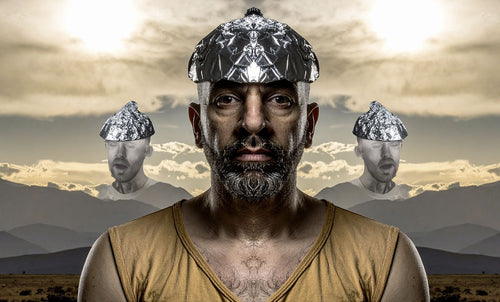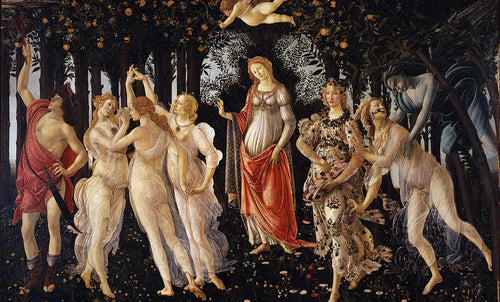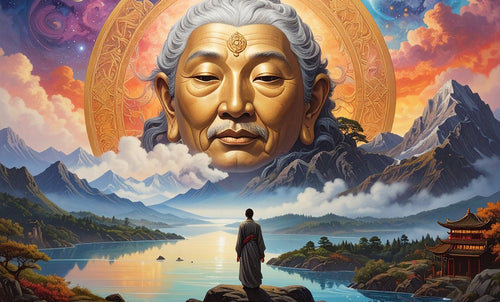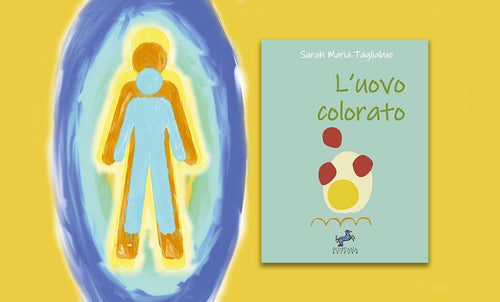
The World of Conspiracies: Conspiracies are Everywhere
Bruno CorzinoEvery time someone says "I don't believe in conspiracies," history laughs. From Santa Claus to the world wars, everything stems from agreements, omissions, and carefully crafted lies. The conspiracy theorist doesn't invent, he observes: he notices that behind every "official truth" there is an advantage for someone. Those who don't want to see it are usually those who benefit from not looking. The world is a big show in which everyone pretends not to know it's being performed. And whoever dares to say so, of course, is a conspiracy theorist. (Introduction by the Publisher)
A quick search for the word " conspiracy " or " conspiracy theory " leads to a magical parallel world of articles where the "obedient flock," foaming at the mouth, spew forth all their venom and violence. This is a true psychological pathology, no doubt, to be eradicated with psychotropic drugs, content censorship, and the isolation and destruction of the guilty parties. Obviously, the straw man who is attacked is always the stupid conspiracy theorist, the one devoid of critical thinking. This caricatured image encompasses all those who dare question the prevailing narrative, whatever it may be. And we arrive at a conclusion as peremptory as it is paradoxical: conspiracies do not exist. Only a sick or misguided mind can believe in their existence.
Now, personally, I believe a dispassionate look at history, or even just the reality around us, is enough to see how conspiracies are everywhere. Indeed, as we stated in the title, conspiracy is the natural state of the world. Only acquired blindness, corporate brainwashing, hides them from view. You're born and told Santa Claus exists. Your parents, your teachers, the movies, and your friends tell you so. Isn't this a conspiracy? A group of people colluding to make someone believe something false? And here we can address the obsessive question of the "believer in the flock," namely: why would they do it? And the answer is that there are a thousand reasons, all different for different people, that fit together perfectly to create a conspiracy.
In the case of Santa Claus, first and foremost there's the industry that wants to sell a multitude of gifts, decorations, and useless items that otherwise wouldn't sell. This motive is shared by parents who see it as a way to make their children happy and show affection in a low-key way. Then there are the retailers, the defenders of the Christian faith who now see it as part of their tradition, the content creators to whom he offers easy-to-use material, and so on. The conspiracy naturally arises from a set of interests that converge in a similar direction.
But then the child grows up and goes to school, and everyone tells him that if he's very obedient and studies hard, he'll get a good job and a happy life. Isn't this another conspiracy? Or maybe they really think that spending 15 years asking permission to go pee creates the ability to make better decisions about one's future? It simply hasn't been this way for decades, and even before that, the difference was always made by social connections, family, etc. Yet everyone continues to propagate this conspiracy. Why? Perhaps because without that cornerstone of obedience, society would become much more chaotic and difficult to control? But the boy grows up and looks for work. He dresses well, prepares a resume that's half false and inflated (another conspiracy, which makes this seem normal), and travels many miles. Once there, he lines up alongside dozens of other desperate people like him, only to be told that the job only exists on paper to receive benefits from the region, state, or whatever, but the position has already been assigned to a cousin of the boss. The talks serve only as legal cover for the aforementioned contributions. Isn't this a conspiracy? But the young man, now a hamster in a pointless job that pays peanuts, begins to ask questions. He discovers that history is full of secret agreements, false flags (attacks carried out by one's own group but disguised as enemy attacks), and propaganda lies. They are not the exception, they are the rule.
Nations have always invented lies to provoke wars . The Greeks and Romans already did it, and probably the leader of the Paleolithic hunters said that the other group had stolen the prey and therefore had to be exterminated. Even if it wasn't true. But everyone wants to be the good guy and no one the bad guy. Even though we are all constantly the bad guy, compared to someone else. But the very fact that we can't accept this makes false flags and propaganda so powerful, because they highlight our intrinsic and innate goodness.
Let's look at a short list of American false flags: the 1898 Cuban War caused by blowing up one of its own ships; the 1964 Vietnam War caused by the false news that Vietnamese ships were attacking US ships; the 1991 Gulf War caused by the US giving Saddam Hussein a false green light to invade Kuwait; the 2001 Invasion of Afghanistan, when he was willing to hand over Osama bin Laden, but the US refused. These are just a few of the cases officially admitted by the government; the list is actually very long. Yet, as we approach the present, or with regard to wars that are still emotionally significant (the First and Second World Wars), suddenly saying that false flags are at play becomes offensive and "conspiratorial." This can only be said about conflicts that are long gone or that no longer inspire any sense of belonging to a group. In other words, they've always done it this way, except when we feel challenged as a herd, when this would affect our sense of identity, making us appear "bad." Or, worse, it would call into question the goodness of the Authority to which we feel we owe our safety, our livelihood, and our identity as part of a society.
The obedient of the herd reaches the point of delusionally declaring that the existence of false flags or conspiracies in the past has no bearing on the present. Which is like saying that the fact that the sun has risen the next day doesn't give you a good chance of believing it will rise tomorrow, and that if you plan your life around this, you're a stupid conspiracy theorist. The fact that conspiracy is the natural state of the world, if you think about it, is quite logical.
The idea that everything is out in the open is to believe that everything is governed by brute force and chance, as Darwinism holds. But even animals constantly use manipulation: a puppy's big eyes save it from a predator, a cat pretends to sleep to lure a bird to land and eat it, a butterfly deceives with its eyes on its wings. The manipulation of a mother who makes her son feel guilty until he eats his soup isn't a conscious technique but a natural response. Just like a lover's lie to appear more attractive to his sweetheart and win her over. Or friends who lie, saying yes, their husband spent the whole night with them. Conspiracy upholds the totems of the state, all of society and the economy; without it, some social groups would have no chance. So it's natural for them to become staunch defenders of the narrative and end up declaring that conspiracies don't exist.

